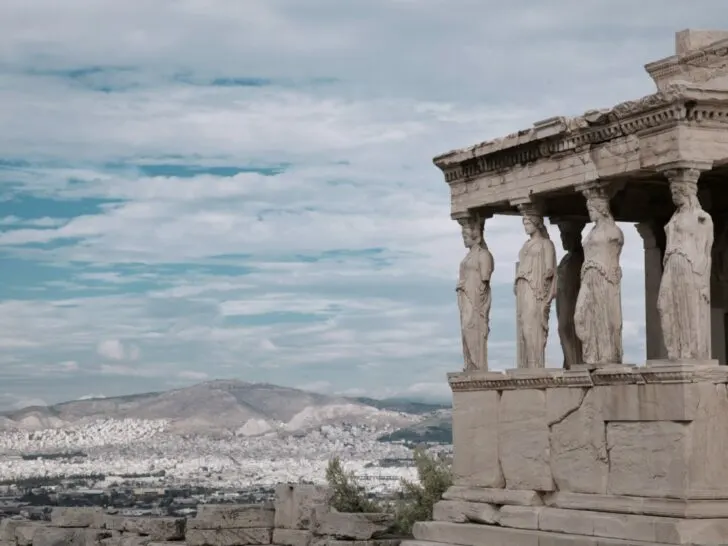Growing up, almost everyone has heard of Zeus and Athena, two figures from the mythology of the Greeks. Many individuals have begun studying mythology as a subject because of how frequently their stories have been told in books and movies.
A collection of myths is known as mythology, particularly all the tales from a single nation, religion, or cultural background.
There were two gods, Helios and Apollo, in the ancient Greek nation many years ago. Although they were both gods of the sun, their personalities were completely dissimilar.
The fundamental distinction between Apollo and Helios is that Apollo is the god of music and archery, while Helios represents the sun as a person.
Despite their differences, the people of ancient Greece worshipped both Helios and Apollo, who were both extremely strong deities. However, they were distinguished from one another by a few other significant characteristics.
To learn more about these differences, as well as the biographies and personalities of these two Geek Gods, keep reading.
Greek Mythology
It is a collection of tales that the ancient Greeks used to comprehend the world. The Greeks connected mythology to religion.
The majority of Greeks, according to many experts, believed the legends to be factual. Others contend that Greek academics dismissed the tales as fabrications.
The Greeks had a wide variety of deities they worshipped. The Greek gods and goddesses also frequently engaged with humans in their mythology. Sometimes they even displayed human behavior. They might be enraged, conceited, or envious.
Another way for people to stay connected to their ancestors, the wars they engaged in, and the places they traveled were by retelling historical events through myths.
The Theogony of Hesiod (about 700 BCE) is the most comprehensive and significant source of mythology relating to the creation of the gods. The broad genealogy described above is supported by folklore and etiological tales.
Greek Gods And Goddesses
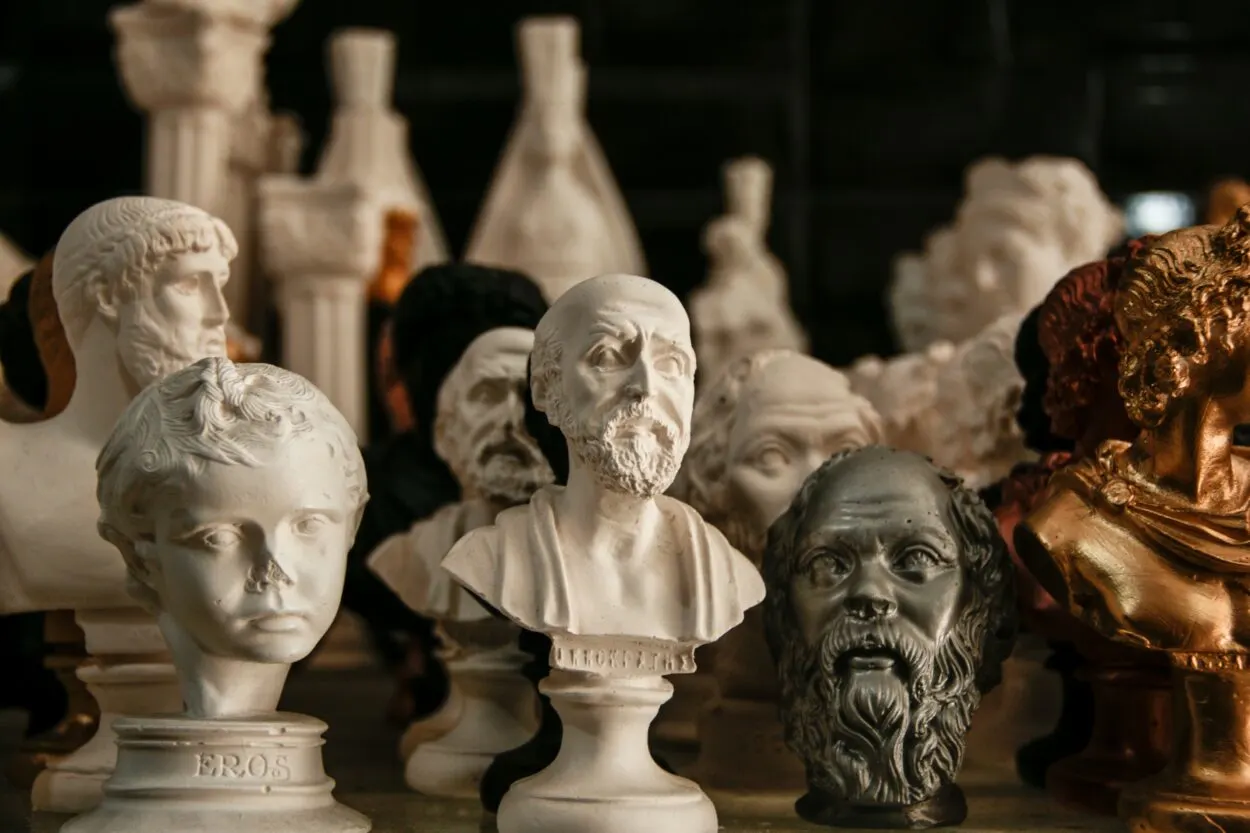
Zeus is one of the most well-known figures in Greek mythology. He reigned as the gods’ ruler.
He and his siblings ruled the world after defeating the Titans. Their names were Demeter, Hera, Hades, Poseidon, and Hestia.
The main Greek gods and goddesses number twelve. The Olympians are what we call them.
The Greeks used tales about the Olympians to explain many aspects of nature. The seasonal changes were explained by the tale of Hades, Persephone, and Demeter.
Arachne was a weaver who was transformed into the first spider by the goddess Athena. Apollo, the son of Zeus, moved the Sun through the sky. Keep in mind that the Greeks lacked contemporary science; they viewed the world in this way.
Origin Of Greek Mythology
Greek civilization has evolved over time, and mythology has changed to reflect this.
Every natural occurrence was given a supernatural explanation by the Balkan Peninsula’s first agricultural populations.
These hazy spirits eventually assumed human form and entered mythology as gods and goddesses.
Greek myths are credited by contemporary researchers with providing modern interpretations and symbols. He developed the conception of the Theban hero, the Oedipal complex.
Others today attempt to highlight the homosexual aspect of ancient Greek mythology, contending that pedophilia, a term coined around 630, and the gradual projection of god-hero relationships began in the middle of the archaic period.
It’s thought that by the end of the 5th century BC, some writers had assigned at least one lover to every major god—except Mars—as well as to a number of fabled figures.
Greek mythology stories were frequently adapted, starting with the Alexandrian poets and continuing through all of the early Roman Empire’s writers.
Who Is Helios?
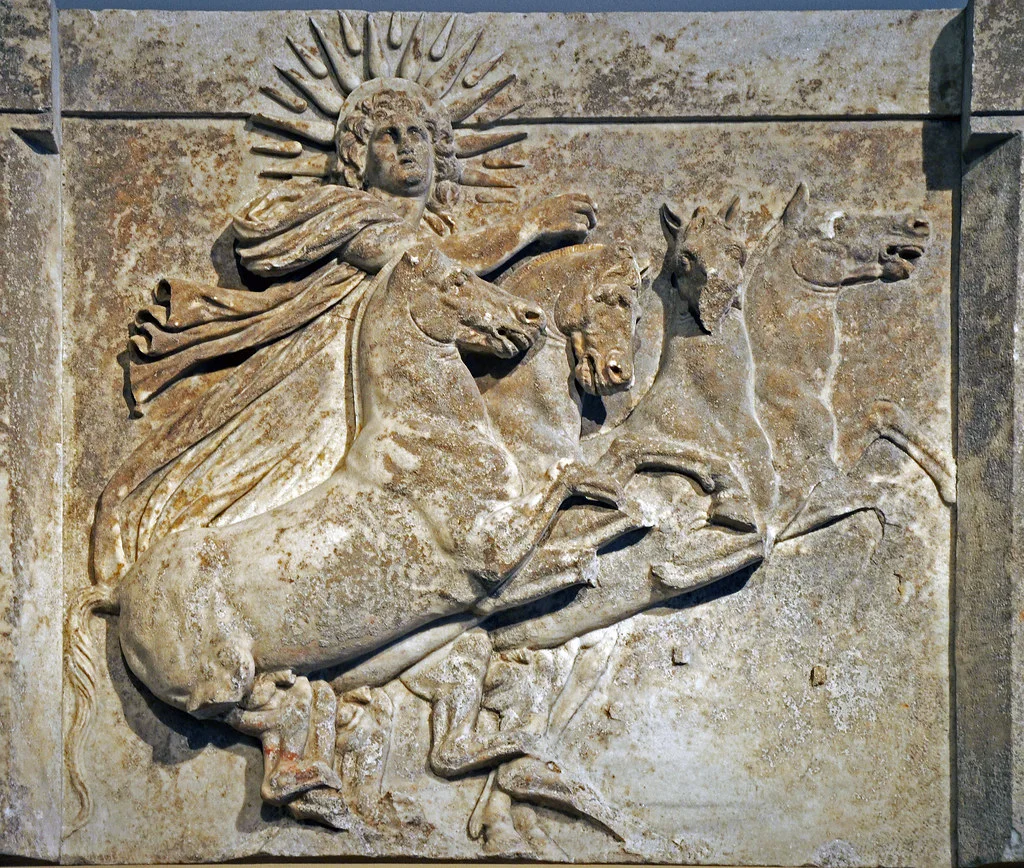
The deity of sight, oaths, and the sun in the Titan pantheon was Helios.
At the extreme reaches of the earth, he lived in a golden palace in the River Okeanos (Oceanus), emerging each dawn in a chariot driven by four winged horses and wearing the aureole of the sun.
When he arrived in the country of the Hesperides in the far West, he entered a golden cup and was transported back to his rising location in the East through the northern streams of Okeanos.
A picture of Helios typically shows him without a beard, dressed in purple, and wearing the sun’s brilliant aureole as his headdress. Four horses, one of which was sometimes winged, pulled his sun chariot.
Rhodes was the only location in Greece where the veneration of Helios was significant. The island’s name comes from the nymph Rhodos, who gave birth to Helios, the island’s protector, and seven sons, according to the mythology that gave rise to it.
The Family Of Helios
Helios was frequently described as the father of witches and sorcerers as well as the ancestor of eastern royal houses, including those of Kolkhis (Colchis), Persia, and India.
One of the Titans, Helios was the brother of Selene (the Moon) and Eos (the Dawn), the son of Hyperion and Theia.
The Charites, Phaethon, Circe, Aeetes, Pasiphae, Heliadae, and Heliades are just a few of the many offspring that Helios had while still married to Perse. He also had other adulterous affairs.
Look at the table below to better understand the family of Helios.
| Family of Helios | Relation |
| Aix | A frightening Gorgon nymph, the daughter of Helios, with a face |
| Astris | The daughter of Helios and the Okeanid-nymph Keto or Klymene was the nymph spouse of the Indian river god Hydaspes. |
| Heliades | The nymph sisters of Phaethon, the young man who attempted to pilot the sun’s chariot, were the offspring of Helios and Klymene |
| Horai 1 | The four seasons’ goddesses were the offspring of Helios (the Sun) and Selene (the Moon). |
| Horai 2 | The goddesses of the twelve hours were occasionally referred to as Helios’ daughters. |
| Kharites | A Greek Aegean witch-queen from the island of Crete. Her parents were Helios and Perseis. |
| Kirke | The daughter of Helios and the Okeanid nymph Perseis was a goddess-witch who lived on the island of Aiaia. |
| Lampetie | She was the daughter of Helios by the nymph Neaira. |
| Pasiphae | A Greek Aegean witch-queen from the island of Crete; her parents were Helios and Perseis |
| Phaethousa | She was the daughter of Helios by the nymph Neaira. |
| Selene | Sometimes, the goddess of the moon was referred to as Helios’ daughter rather than his sister. |
| Telkhines | Occasionally referred to as the children of Helios and the Rhodian Athena, daemon-magicians were native to the island of Rhodes. |
Who Is Appollo?
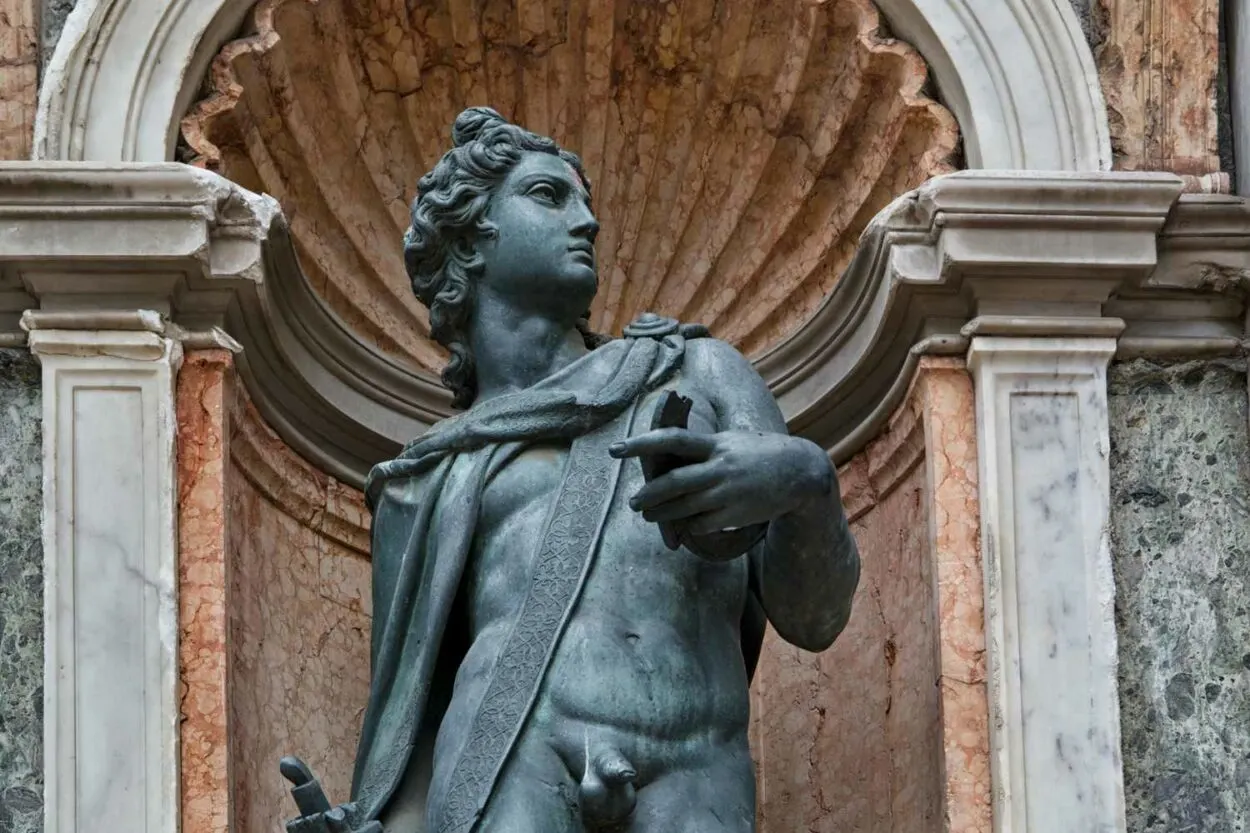
Even though he might occasionally be petty and spiteful, Apollo is the famed Olympian god of Greek mythology. He is a hero and a bringer of life.
He resides on Mount Olympus with the other Eleven Olympian gods. His twin sister is the Greek goddess of hunting, Artemis. He served as Delphi’s protector deity.
Apollo was shown as an attractive, active young man with curly hair. He frequently wore a laurel wreath around his head as a symbol of his devotion to Daphne.
He possessed a variety of exceptional abilities, such as the capacity for future vision and control over light. He could also bring sickness and disease or heal people. Apollo was a powerful archer and Barrowman in combat.
Twin Brother Of Artemis
Artemis, the goddess of the moon and hunting, is Apollo’s twin sister and lacks the solar abilities of her sibling.
Artemis helped her mother deliver her younger brother safely because she was born just before Apollo. Although they had different responsibilities, Artemis and Apollo occasionally collaborated on stories.
In the tragic myth of Niobe, a woman by the name of Niobe belittles Leto, the mother of Apollo and Artemis, by boasting about how many kids she has.
Apollo and Artemis brutally murder all of Niobe’s kids in front of her as a form of retaliation.
Difference Between Helios And Apollo
Although both Helios and Apollo were significant gods in ancient Greek religion and mythology, they were connected to various facets of the sun.
Particularly revered as the sun’s patron god, Helios was in charge of the sun’s daily rising and setting. He was frequently pictured as a strong man riding a chariot across the sky with the sun behind him as a blazing orb.
On the other hand, Apollo was a more multifaceted deity who was connected to numerous facets of Greek mythology and society. Among other things, he was frequently referred to as the deity of music, poetry, prophecy, and healing. He was also connected to the sun.
Apollo’s connection to the sun, however, was distinct from Helios’ in that he was linked to the sun’s intellectual and spiritual elements rather than its outward manifestation in the sky.
Apollo was frequently portrayed as the sun’s light and reason, and it was thought that he would enlighten and understand the world.
Apollo was in fact a distinct god, according to the ancient Greek poet Homer. Apollo used a silver bow, as opposed to Helios, who was frequently connected with gold.
He, therefore, didn’t have any solar qualities at first. Apollo, however, increasingly became associated with Helios as time went on and the adoration of Helios decreased.
Despite these contrasts, Helios and Apollo were both significant and revered gods in ancient Greek mythology, and many facets of ancient Greek society and art bear witness to their influence.
Other Figures Related To Helios And Apollo
Zeus
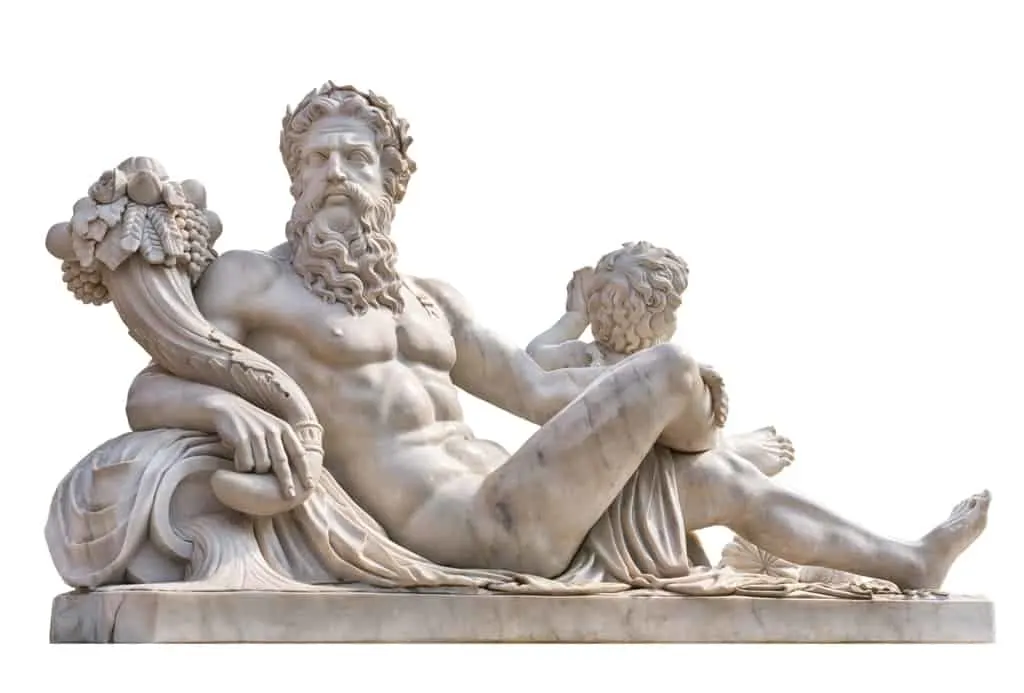
The Titans Kronos and Rheia had a little son named Zeus. The god was secretly nurtured on Mount Dikte in Krete (Crete), where he was fed goat milk by nymphs and protected by the warrior Kouretes.
The Greek god Zeus was the most potent and has many abilities. His ability to fire lightning bolts is probably his most well-known talent.
He trained an eagle to retrieve his lightning bolts from his flying horse Pegasus. He had the power to alter the weather, bringing in heavy rainstorms.
Zeus possessed additional abilities. He could imitate anyone’s voice and sound like them.
Additionally, he had the ability to change his shape to appear as a person or an animal. Sometimes he would transform humans into animals as a form of punishment for upsetting him.
Poseidon
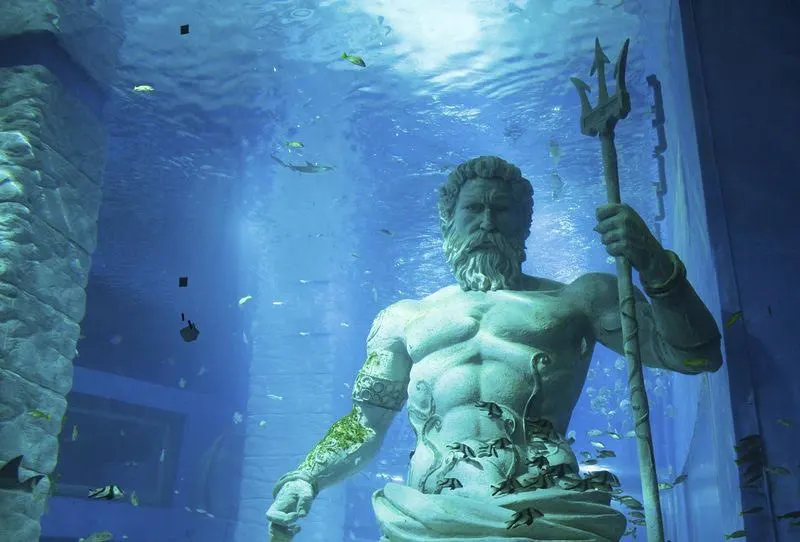
The sea god Poseidon is a fierce and assertive personality; he was one of the Twelve Olympians and was revered as the creator of the horse in addition to being feared for causing earthquakes.
Poseidon was a short-tempered god who repeatedly clashed with other gods and humans, most notably Athena and Odysseus.
Poseidon was born with his father Kronos (Cronus) swallowing him whole, but Zeus subsequently enlisted the help of the goddess Metis, who gave the Titan a magical drink that made him spit out the god.
Poseidon is only recognized as a sea deity now, but he may have also served as the supreme god of the sky, the god of the land and fertility, or maybe both.
Conclusion
- Both Helios and Apollo are significant characters in Greek mythology, and they each have distinctive traits and tales to tell.
- Greek myths are folktales and mythology that have been passed down from classical Greece. They describe the origins of gods and other supernatural creatures, the conflicts between good guys and bad guys, the making of the universe and its manifestations, and numerous ritual practices.
- The god of the sun is Helios, who is frequently pictured as a gorgeous deity wearing a crown made of sun rays. Greek roots translate his name as “sun” in English. Helios is frequently thought of as the one who pulls the sun’s chariot through the sky each day, illuminating and warming the earth.
- Apollo, on the other hand, is the deity of poetry, music, healing, and prophecy. He is frequently pictured as a young guy with a bow and arrow or a lyre. In Greek, Apollo’s name means “to destroy” or “to purify,” and he is known for establishing harmony and order in the universe.

